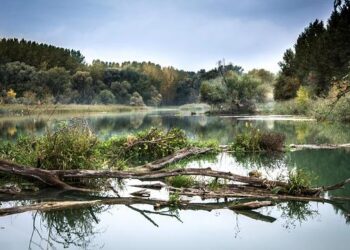Slovakia’s Legalization of Brown Bear Meat Sales: A Complex Intersection of Tradition, Conservation, and Ethics
Unpacking Slovakia’s Bold Move to Permit Brown Bear Meat Commerce
In a decision that has ignited intense discussion across environmental and social spheres, Slovakia has authorized the commercial sale of brown bear meat within its borders. This policy shift reflects a nuanced blend of wildlife management strategies and longstanding culinary customs. Advocates suggest that controlled hunting paired with regulated meat sales could foster sustainable population control while providing economic benefits to rural communities. Conversely, opponents caution against potential ethical dilemmas and the risk of exacerbating threats to brown bear populations through increased hunting pressure or illegal trade.
The debate extends beyond national boundaries as international conservation groups scrutinize the implications for biodiversity preservation. The cultural symbolism attached to brown bears in Slovak folklore further complicates public opinion, highlighting tensions between preserving heritage and adapting modern wildlife policies.
Ethical Dimensions Surrounding Brown Bear Meat Commercialization
The authorization to sell brown bear meat raises profound moral questions about humanity’s relationship with wildlife. Critics emphasize concerns over animal welfare and the possibility that legitimizing such sales might inadvertently encourage poaching activities despite regulatory frameworks. The ecological role of bears—as apex predators influencing forest ecosystems—adds another layer of complexity; any decline in their numbers could disrupt local biodiversity.
Public reactions remain polarized: some view this as an opportunity for sustainable resource use aligned with traditional practices, while others fear it may erode protections for a species already vulnerable due to habitat loss and human encroachment.
Consequences for Wildlife Preservation and Rural Economies
This legislative change carries significant ramifications both ecologically and socioeconomically. From a conservation standpoint, increased legal hunting quotas must be carefully balanced against scientific data on population dynamics to avoid unintended declines in bear numbers—a concern echoed by recent studies indicating fluctuating Eurasian brown bear populations across Central Europe.
Economically, regulated sales open new revenue streams for hunters, butchers, restaurants specializing in game cuisine, and related businesses within rural areas where employment opportunities are often limited. However, this economic incentive risks creating friction between conservation advocates prioritizing ecosystem health versus locals seeking livelihood improvements.
- Community education initiatives: Programs designed to inform residents about sustainable hunting methods can help align economic interests with ecological responsibility.
- Sustainable harvesting workshops: Training sessions aimed at minimizing environmental impact while maximizing resource utilization efficiency.
- Ecosystem protection incentives: Financial rewards or subsidies encouraging habitat preservation efforts among landowners adjacent to bear territories.
User Safety Protocols When Consuming Brown Bear Meat
The introduction of legally sold brown bear meat necessitates strict adherence to health standards by consumers. Ensuring that all products originate from officially licensed sources is paramount; this guarantees compliance with national regulations governing wildlife harvesting practices designed to protect both humans and animals alike.
- Avoid raw or insufficiently cooked meat: Thorough cooking—reaching internal temperatures above 75°C (165°F)—is essential for eliminating parasites such as Trichinella spiralis commonly found in wild game meats worldwide.
–>
– Regularly check meat quality indicators including smell discoloration or texture changes.
– Maintain rigorous hygiene when handling raw products by washing hands thoroughly along with all utensils.
– Limit consumption frequency because wild carnivores like bears may accumulate environmental contaminants such as lead from ammunition residues.
<
| >Health Consideration< | >Recommended Practice< |
|---|---|
| >Cooking Temperature< | >At least 75°C (165°F)< |
| >Source Verification< | >Purchase only from licensed vendors adhering strictly to regulations.< |













